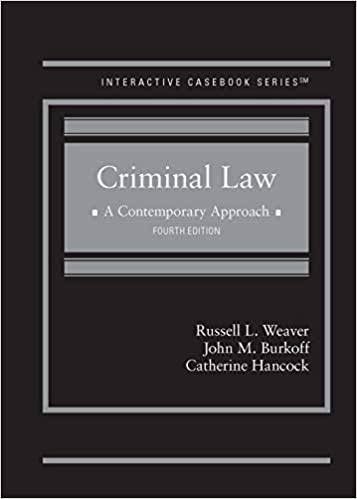Question
Amily is a shareholder and managing director of a limited liability company called AMU (UK) Pte Ltdand all its subsidiaries, which produces candies. AMU (UK)
Amily is a shareholder and managing director of a limited liability company called AMU (UK) Pte Ltdand all its subsidiaries, which produces candies. AMU (UK) Pte Ltd is incorporated in England. She is also a qualified accountant.
AMU (UK) Pte Ltd was created in 2005, with a share capital of 40,000, with each share having a par value of 1. Amily is the majority shareholder and originally held 26,000 shares. Silver owns 4,000 shares, while Emma owns 7,000 shares. In 2006, Ethan (Amily's cousin), transferred his own 3,000 to Amily. Silver and Emma are registered directors of AMU (UK) Pte Ltd and its subsidiaries.
At its inception, the company grew rapidly and as a result, Amily set up subsidiary companies, with a view to expanding into the Asian and American market. She created AMU Intl Inc. in Delaware in 2007 and AMU Intl Pte Ltd (Singapore) in the Singapore in 2008. These are wholly owned subsidiaries of AMU Intl (UK) Pte Ltd.
While there are no manufacturing operations in the United States, the company maintains an office in Delaware, with ten employees for purposes of public relations and contract procuring reasons. The Singapore subsidiary owns a small candy factory in Jurong with 15 employees to cater to the South East Asian market.
In 2009, AMU (UK) Pte Ltd acquired another - defunct yet still operational - candy company incorporated in Singapore, Sugary Pte Ltd operating in Yochukang, Singapore for S$20,000,000, with the view to expand its operations and output. It financed the acquisition as follows:
S$10,000,000 from States Finance Partners Inc in the United States through AMU Intl Inc;
S$5,000,000 from Shintel LLP, a limited liability partnership registered in Singapore through AMU Intl Pte Ltd (Singapore); and
S$5,000,000 from Development Holdings (an investment company based in the UK) through AMU Intl (UK) Pte Ltd.
AMU (UK) Pte Ltd stood as the corporate guarantor for the capital loaned from States Finance Partners Inc and Shintel LLP. The loan via Development Holdings did not require any collateral.
The new Yochukang, Singapore factory was recommissioned and commenced candy production again in early 2010. Initially all went well such that in 2011 the factory reported a small operating profit with a healthy order book. However, by the end of 2011, the financial crash caught up with the company and resulted in a huge fall-off in orders in the last two quarters. The company reported a serious financial loss for that financial year. In addition, there was a huge setback when the parent company purchased a candy making equipment to increase output worth 1,000,000 from Amily's husband, Tom's company for the Singapore manufacturing operation that was dysfunctional.
Amily and the other shareholders held a board meeting and discussed whether they should cut their losses. All shareholders but Amily agreed that liquidation was the best option. Amily used her majority holding to defeat the motion, as she believed she could convince a Chinese buyer to buy the group operations as a going concern. She had also indicated that she would refuse to accept a competing bid for take-over from a French company because she wished to retain control. The other directors genuinely thought that the French company would be a better strategic partner for the group in the long term.
It later transpired that Amily had in fact already commenced negotiations with the Chinese buyer, who happens to be a close contact of Tom, without informing the board. Further, she considerably undervalued the Singapore operations to complete the deal for the company. Nine months later, the Chinese buyer pulled out of the deal. By that time, the Singapore operations had losses amounting to $25,000,000 and other interested buyers had moved on.
Amily then held another board meeting and informed the board of the failure of the Chinese deal.She also revealed that AMU (UK) Pte Ltd itself was in financial trouble and, with the help of her cousin Ethan, she persuaded the other shareholders to dissolve the company and its subsidiaries, thereby terminating AMU Intl' legal existence in the UK, US and Singapore.
It transpired however, that AMU (UK) Pte Ltd and its subsidiaries were terminated with debts amounting to 50,000,000, including the balance of the loans to States Finance Partners Inc. (S$5,700,000 still owed), Shintel LLP, and Development Holdings ($1,997,000 each).
It also transpired that Amily had engaged in capital transfers of funds ($40,000,000 in total) to the two other entities in the UK and Singapore, with the aid of the company's accountants but without informing the board. There is evidence that Amily had been using the assets of her foreign subsidiaries to finance the purchase of a villa in Italy, to fund (as tax-deductible 'business trips'), family-and-friends excursions to the villa (by private jet; none of the friends seems ever to have had any business dealings with any of Amily's companies), and to fund a lavish lifestyle in Florence and Rome.
Consider the possible approach in each of the three jurisdictions (United States; United Kingdom; and Singapore) to the question of piercing the corporate veil to recover debts. In which jurisdiction(s) is the corporate veil likely to be pierced and what does it mean for Amily?
To provide a comprehensive answer, not only will you need to determine which jurisdiction(s) UK, Singapore and Delaware is/are more likely to pierce the corporate veil, but you will also need to discuss other elements of corporate law such as: (i) directors' duties; and (ii) shareholders' protection.
Step by Step Solution
There are 3 Steps involved in it
Step: 1

Get Instant Access to Expert-Tailored Solutions
See step-by-step solutions with expert insights and AI powered tools for academic success
Step: 2

Step: 3

Ace Your Homework with AI
Get the answers you need in no time with our AI-driven, step-by-step assistance
Get Started


